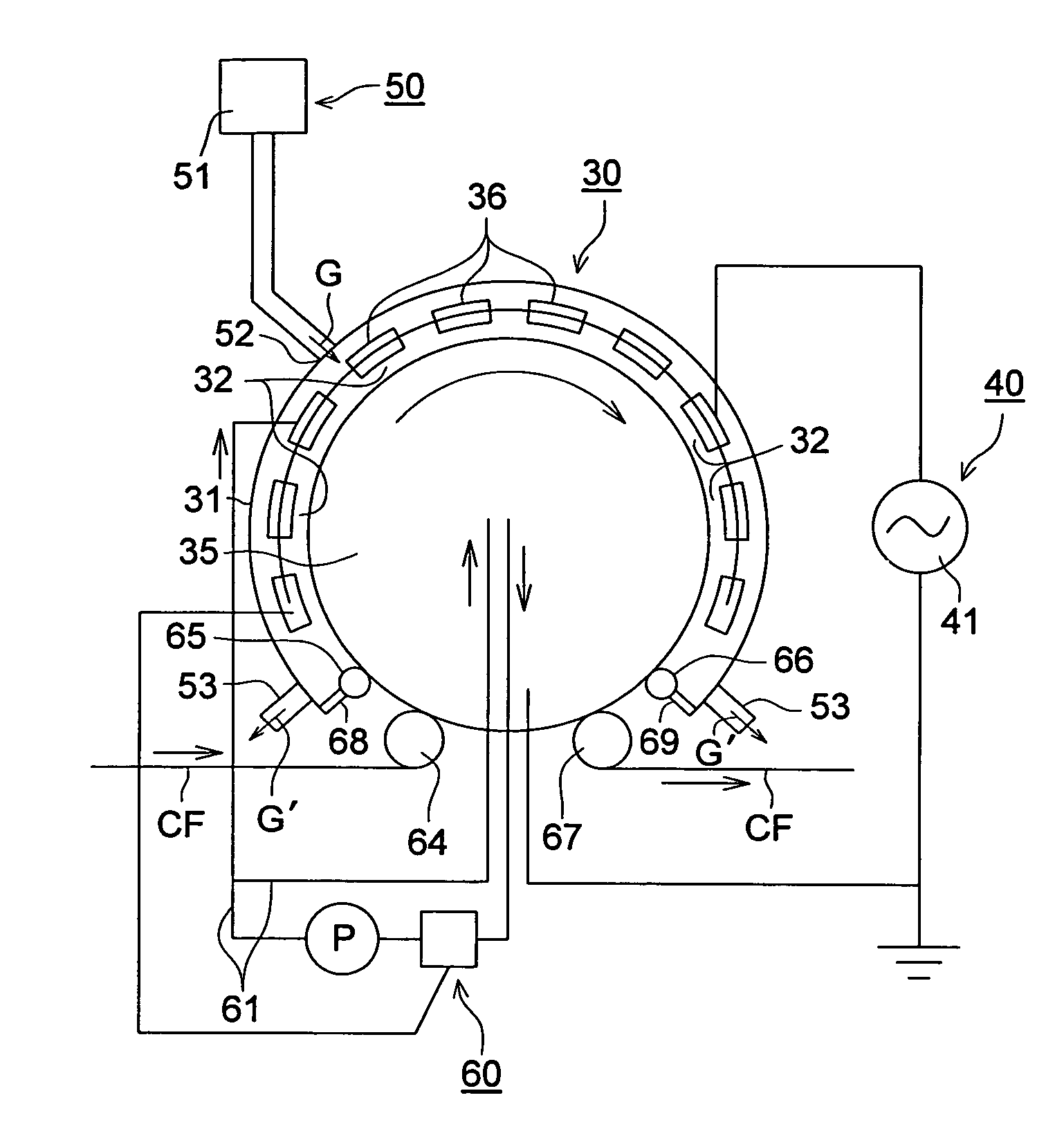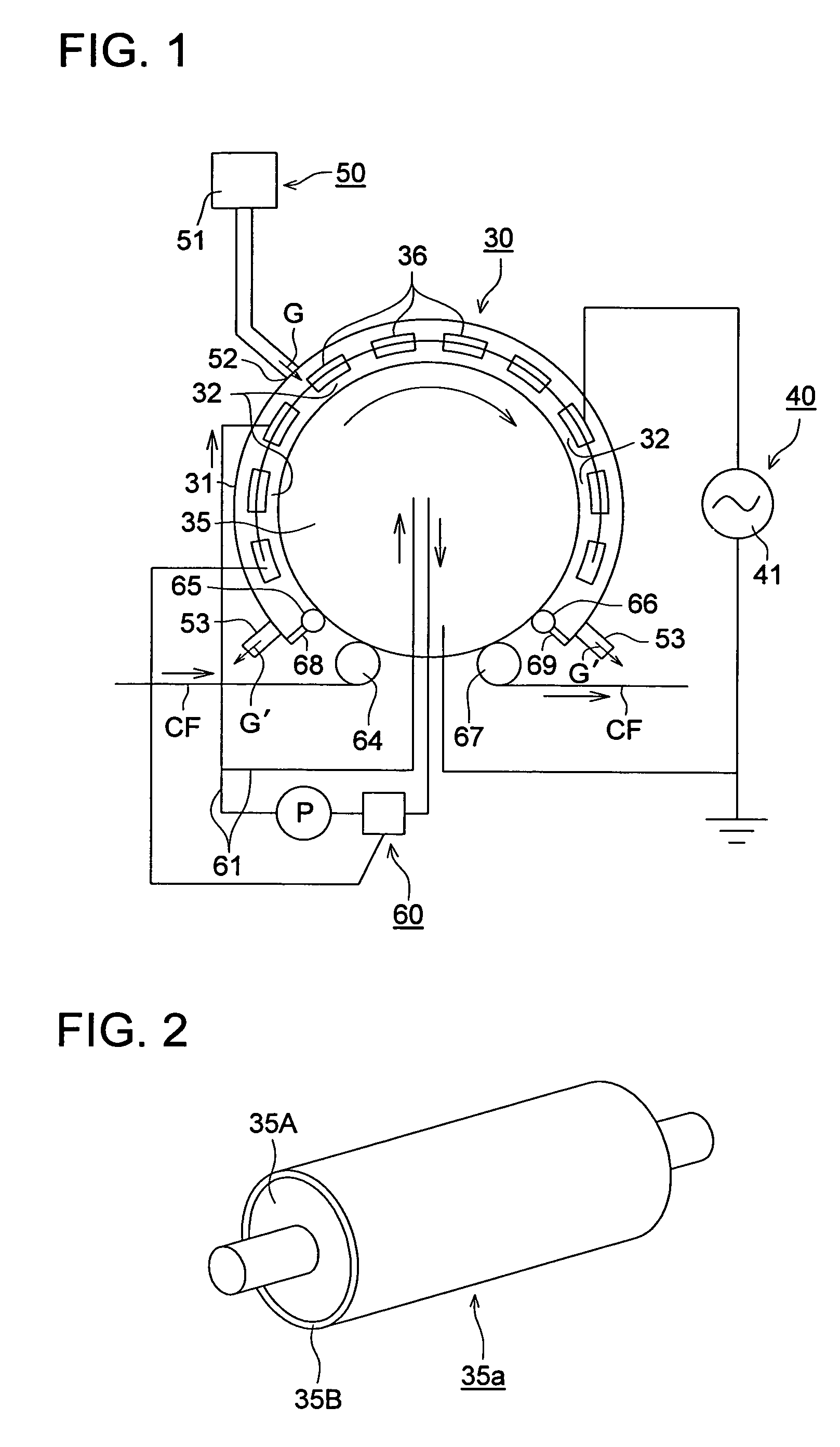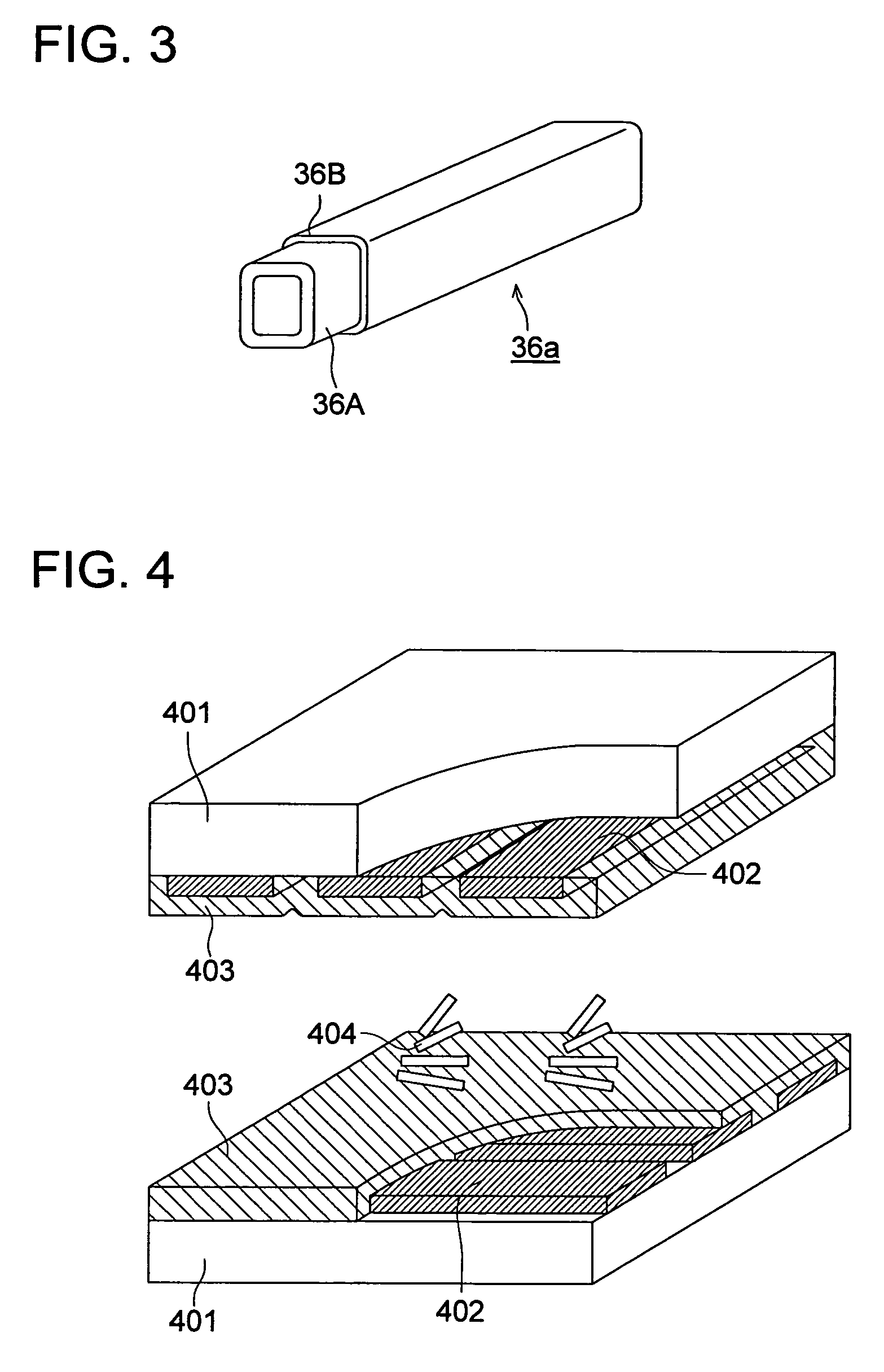Transparent film for display substrate, display substrate using the film and method of manufacturing the same, liquid crystal display, organic electroluminescence display, and touch panel
a technology of transparent film and substrate, which is applied in the direction of identification means, thin material handling, instruments, etc., can solve the problems of plasticizer reducing and high expansion coefficient of cellulose ester, so as to reduce the glass-transition temperature of cellulose ester, increase the thermal expansion coefficient, and high moisture absorbing expansion coefficient
- Summary
- Abstract
- Description
- Claims
- Application Information
AI Technical Summary
Benefits of technology
Problems solved by technology
Method used
Image
Examples
embodiment 1
[0332]
[0333]Synthesis was carried out by reference to the synthesis method disclosed in the J. Appl. Polym. Sci., vol. 58, 1263-1274(1995).
[0334]100 parts by mass of diacetyl cellulose (hereinafter referred to as “DAC”) was dissolved in 700 parts by mass of dehydrated tetrahydrofuran (hereinafter referred to as “THF”). After that, 10 parts by mass of 3-isocyanatepropylethoxysilane (hereinafter referred to as “IPTES”) was dropped, and 0.8 parts by mass of dibutyl tin dilaurate was dropped as a catalyst. This was stirred under heating and reflex for five hours.
[0335]Five hours later, the infrared absorption spectrum of the solution was measured. It was revealed that the absorption of 2271 cm−1 derived from the isocyanate group of the IPTES had been disappeared. Accordingly, heating was suspended and the solution was left to cool down. It was poured into 3 L of methanol to be settled again, whereby a white solid was obtained at a yield of 99.6%. The Si29−NMR spectrum of the white solid...
embodiment 2
[0416]Transparent conductive films 201 through 223 were prepared by forming thin films on the substrate films 101 through 123 obtained in the first embodiment in the order of the clear hard coated layer (on both surfaces), moisture proof film (on both surfaces) and transparent conductive film (on one surface).
[0417]
[0418]The substrate film 101 was coated using an extrusion coater so that the composition of the coating of the following hard coated layer would have a film thickness of 3 μm. After that, it was dried for one minute by the drier with its temperature set at 80 degrees Celsius, and was then exposed to ultraviolet irradiation of 120 mW / cm2, whereby the clear hard coated layer was formed.
[0419]
(Coating composition of clear hard coated layer)Dipenta-erithritol hexaacrylate monomer:60parts by massDipenta-erithritol hexaacrylate dimmer:20parts by massDipenta-erithritol hexaacrylate trimer:20parts by massDimethoxybenzophenone:4parts by massEthyl acetate:50parts by massMethylethy...
embodiment 3
[0443]A TN liquid crystal display device given in FIG. 4 was manufactured according to the following procedure, using the aforementioned transparent conductive films 201 through 205 and 207 through 218 of the present invention, and the transparent conductive films 206 and 219 through 223 of comparative examples.
[0444]
[0445]A resin layer (not illustrated) for smoothing was coated on the aforementioned transparent conductive film as a transparent conductive substrate 401. A transparent conductive film was formed further on this resin layer directly or via a silicon dioxide film. This was provided with patterning to form a stripe-like shape, so that a display electrode 402 was formed. An opposing substrate was produced using the same transparent conductive substrate. Namely, a display electrode was formed on the opposing substrate side as well. Further, an oriented film 403 and sealing material (not illustrated) were formed by a printing method or the like. Two substrates were placed o...
PUM
| Property | Measurement | Unit |
|---|---|---|
| transparent | aaaaa | aaaaa |
| glass-transition temperature | aaaaa | aaaaa |
| wavelength | aaaaa | aaaaa |
Abstract
Description
Claims
Application Information
 Login to View More
Login to View More - R&D
- Intellectual Property
- Life Sciences
- Materials
- Tech Scout
- Unparalleled Data Quality
- Higher Quality Content
- 60% Fewer Hallucinations
Browse by: Latest US Patents, China's latest patents, Technical Efficacy Thesaurus, Application Domain, Technology Topic, Popular Technical Reports.
© 2025 PatSnap. All rights reserved.Legal|Privacy policy|Modern Slavery Act Transparency Statement|Sitemap|About US| Contact US: help@patsnap.com



